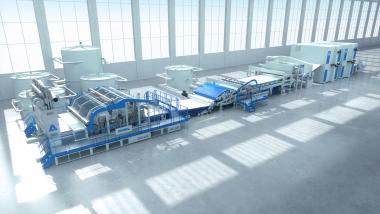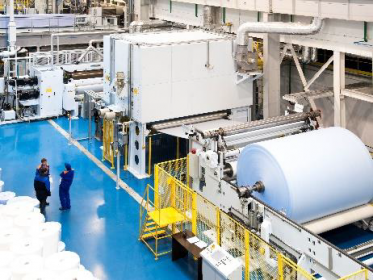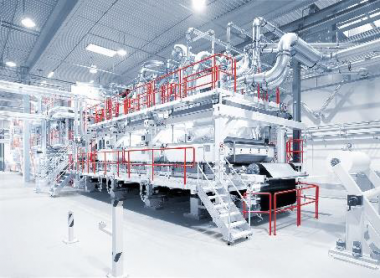Lenzing supports school competition on circular economy and climate protection
- Excellent project to encourage ingenuity among young students
- Experiment on biodegradability of textiles and nonwovens produces impressive results
- EUR 30,000 in prize money for a total of 209 participating schools in and outside Austria
- Lenzing views supporting these kinds of projects as part of its sustainability mission
Lenzing – The Association of Chemistry Teachers in Austria – known by its German abbreviation, VCÖ – has been holding project competitions that thrill students and take them beyond the traditional syllabus for 30 years. Every two years, it highlights a key topic for ninth- and tenth-graders to explore by conducting special experiments and learning from their observations and conclusions.
This year, the 16th installment of the competition is called, “Achieving a cleaner climate and a circular economy with chemistry”. These topics are also near and dear to the heart of globally active fiber manufacturer Lenzing. That’s why the company promptly announced that it was prepared to support this project competition in several different ways. First, Lenzing made a contribution toward the sponsorship fund totaling EUR 30,000. Second, it initiated a special prize on biodegradability – a topic of growing importance given the huge challenges involved in reducing plastic waste. Finally, Lenzing placed a recognized expert at the students’ disposal to provide assistance and answer questions: Michaela Kogler, Project Manager Nonwovens & Technical Products.
Teaming up with rainworms
Two teams were tasked with biodegrading different fibers – just like those used to produce textiles and nonwovens – with the active participation of worms. Students at BRG solarCity in Linz buried fiber nonwovens, a basic material used in wet wipes and other products, in soil that was populated with numerous rainworms, while students at Vöcklabruck Junior High School for Sports and Integration layered textiles into a vermicomposting bin. Both experiments intended to determine the extent to which certain materials would biodegrade quickly. As it turned out, both projects showed that wood-based fibers, like those that Lenzing manufactures for the textile and nonwoven industry, break down very rapidly into natural constituents that swiftly pass into the soil. In contrast, fossil-based plastics such as polyester or polyethylene cannot be decomposed by worms or bacteria but remain in the soil, sometimes for hundreds of years.
The prizes for this year’s competition were awarded on June 11. The competition attracted entries from no fewer than 209 schools, including 11 from outside Austria. For more information on the projects and the winners, visit www.vcoe.or.at.
Lenzing AG VCÖ Verband der Chemielehrer/innen Österreichs biodegradable nonwovens textile industry Sustainability
Lenzing Aktiengesellschaft
























